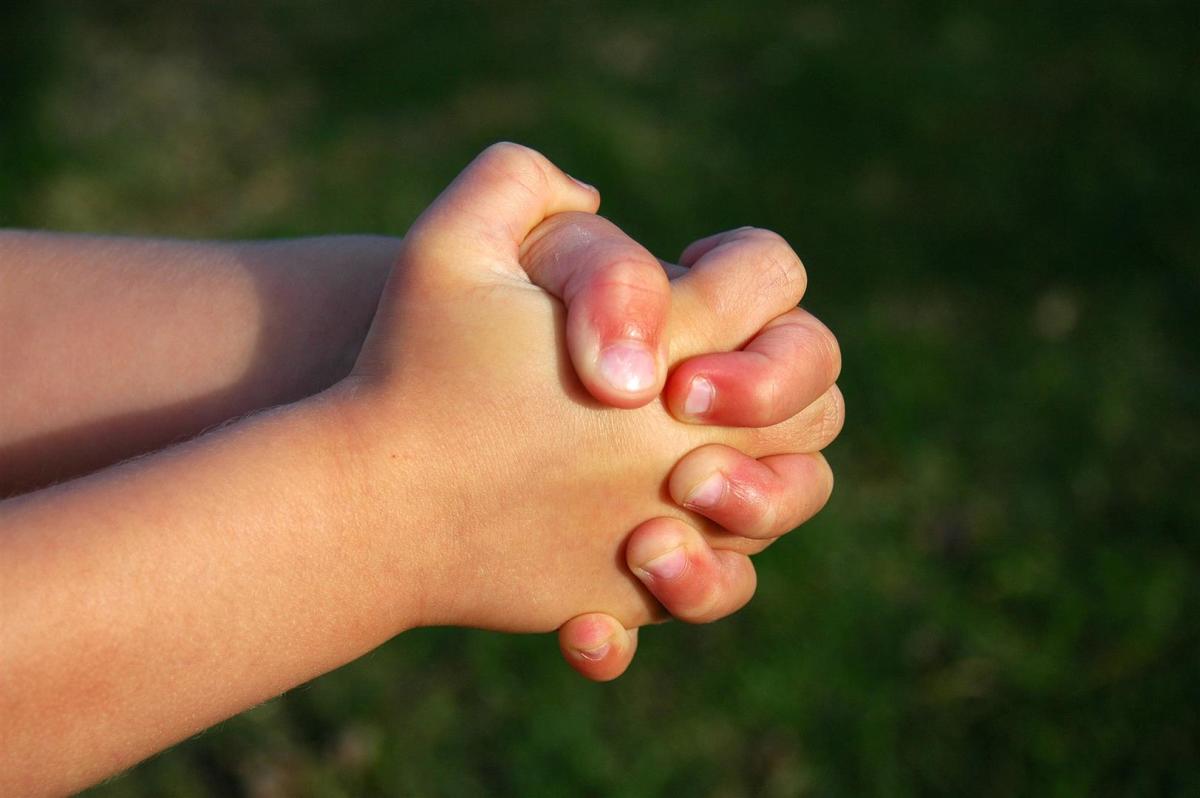Why Pray?

Why should we pray? Does prayer work? It all depends on how you look at it, what you hope to get out of it, and how you go about it. Prayer is neither a magic ticket to wealth and pleasure, nor is it a duty to be born ritualistically by all the “faithful”. Prayer is an incredible and powerful gift from God, designed to bless us in incalculable ways.
Be Still And Know
Life is hectic. We race from one thing to the next, and still never seem to have enough time to get everything done. Stress is killing us, literally, as any psychologist or physician can tell you. It hardly seems, in the midst of all the rush, that we could afford to take additional time out of our day to do… nothing at all. But as contemplative traditions within all religions will tell you, the question we should be asking is: can we afford not to? The benefits of simply sitting still and clearing our minds of every thought and concern and stress, if for only ten or fifteen minutes a day, are well established in medicine and psychology.
Really, there is nothing mysterious or “New Age” about any of this. It is simply a matter of giving yourself an opportunity, every day, to stop doing and planning and just enjoy being. For those who believe in God, this “being” would be prayer in the sense that one can visualize God just “being” along with them, giving them the gifts of being and oneness. “Be still and know that I Am God.” The essence of prayer is just spending time in God’s presence.

“Giving” Thanks
“Being” is something to be thankful for. The opportunity to live, each day, in God, who is all around us. The gift of another breath. A new morning. Another chance. The ills of yesterday erased by the gift of sleep’s forgetfulness, and the opportunity for something brand new with every new appearance of the sun. Life, in any vital sense of the word, can not be separated from thankfulness. Every meal eaten, every chance to spend time with loved ones, every time we get to take a walk in the beauty of nature, we should be reminded that life is precious. It is a gift. Life is not worth living unless we live in this realization. Prayer gives us the chance to take time and redirect our busy minds back to the reality of this, and be renewed.
Leaving Your Body
I’m not talking about an OBE (out-of-body experience). I’m talking about leaving your body in the sense of leaving that false “self” which is generated by your body. This self--the “self” which strives to get ahead of others, worries endlessly about what others are thinking about it, or perhaps worst of all, simply forgets about others entirely, swallowed completely in its frantic self-absorption--is a lie. It is an illusion. Our real Self is found in others.
Unfortunately, left to our own devices, we tend to forget this. At least I do. I love to read and write, so if I had “my” way, I would spend every moment of my time doing those things, all in a frenzy, thinking I’m still not getting enough done. Not only will I forget about other people in this condition, but if someone dares to intrude upon me while I am trying to do what’s “important” to me, I will be likely to feel rather annoyed by them, rather than welcome an opportunity to spend time with a loved one. But when I’m thinking clearly, I realize that books will always be there, but my loved ones will not. One day, they will all die. Therefore, time with them is precious.
During prayer, we can make a point to remember other people (some call this “intercession”). We can pray about their circumstances, thus helping us empathize with them and keep in mind what they are going through. We can rejoice with their joys, and sorrow with their pains. Then when we get the opportunity to interact with them or show them love, we will be much more likely to seize the opportunity as we should, having been prepared by praying for them. From my perspective, praying for others benefits them by realigning our attitudes toward them, and then we benefit them directly when we have the chance.

The Prayer Effect
Studies have shown that prayer does improve the prognosis of sick people. Interestingly, other studies have shown that this is only the case when the person being prayed for knows that they are being prayed for. In other words, because the person knows that they are being prayed for, and has some degree of hope or belief that this may help them, this belief itself improves their condition. While we might, therefore, feel inclined to see the power of prayer as being nothing more than the placebo effect, we should not write prayer off on that account. If anything, we should be encouraged to see that something which has been known for millennia has now been scientifically demonstrated. Over and over again, in the New Testament itself, it is clearly shown that the power of prayer to heal the sick lies in the belief of the person needing the healing. It works because the sick person believes that it will. When Jesus healed people, He would first ask them, “Do you believe I can heal you?” If the person did believe, Jesus would heal them, telling them, “Your faith (belief) has made you well.”
Evaluation and Improvement
When we pray, we may confess our sins. By this, I mean we can look back at our day to see where we fell short, where we went wrong, what mistakes we made, and who we failed to treat right. It is important to make such a review, because this allows us to acknowledge why and how exactly these things constituted mistakes, and this way, we will know how to focus on not repeating those same mistakes the next day. When we admit to God the exact nature of our wrongs (to steal lingo from the twelve-steps), we do so expecting that he will forgive us, but perhaps more importantly, we ask him to purify us. That is, we ask him to help us repent. Purification and repentance are not somber, miserable sort of things that must coincide with weeping, breast-beating, or flagellation. Those things are optional. Repentance, as the Greek word indicates, is just a “change of mind”. It is the blessing of afterthought, by which we are given the grace to alter our course. When we ask God to purify us, we are only asking him to remove the defects of character which led up to the day’s shortcomings. We are asking for the divine strength and empowering to change and do better the next day. “Lead us not to temptation, but deliver us from (our own) evil.” This ability to change and improve (repentance), like all good things, is a gift, and a cause for thankfulness, and a cause for the joy that comes with thankfulness.

Thy Will Be Done
Stress and anxiety are the opposites of peace. Depression, the opposite of joy. As you can tell by watching pharmaceutical commercials, anxiety and depression are all around us. We live in an age of anxiety and depression. We live in an age of existential void, a loss of meaning, which is the root of anxiety and depression. Anxiety often results when we have created a false meaning for our lives, and feel stressed trying to defend that meaning from any outside harm or destruction. Depression results when we sense on some level the ultimate emptiness of all the so-called meanings we have made for ourselves.
The key to all peace and joy are found in the words “Thy will be done.” In the Greek, this is not a passive, defeated sort of concession. It is a third-person imperative (a command). “May your will be done! I wish it so!” We must entirely surrender our lives to the will of God. We don’t have to always know what that is. We can trust that God will gradually reveal it to us as we grow in union with Him. But it is in our decision to will whatever He wills that we find peace and joy. We lose the anxiety that comes with worrying over our own plans and agendas and dreams, because we realize that there is no overarching, outside meaning to those things. This doesn’t mean that none of them may fit into God’s meaning. It only means that whatever it is that God’s will has in store for us, we may trust that to be our highest good. And we may further trust that whatever God’s will is, it will certainly be done. So we have no need to be stressed. With God’s will as our purpose in life, we can not fail at our purpose. And with such a high purpose and calling, where is room for depression?








